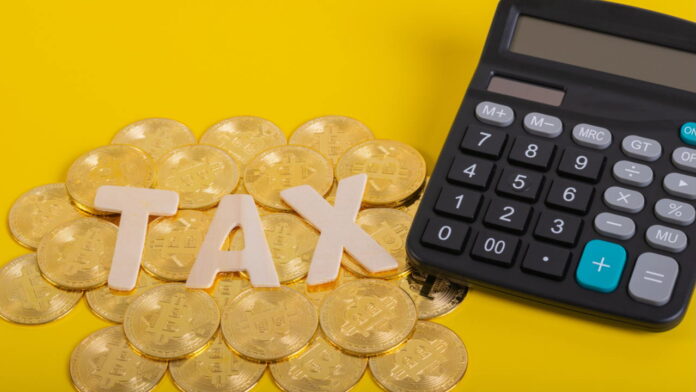Cryptocurrency came to life in 2008. Bitcoin was the first ever to represent the world as a virtual currency. However, it took time for cryptocurrency, especially Bitcoin, to make space for itself in the financial market. Finally, the time came when crypto was ready to shoot!
2016 was the first time Bitcoin started to get popular. In the meantime, many other cryptocurrencies platforms were developed and launched in the market such as bitcoinsprint.io, but people were least bothered to pay attention to the crypto market. Fast forward to 2020, after COVID-19, people were looking for ways, passive income, an income where they could make a speedy yet profitable one, and only cryptocurrency was the one to provide that. That is why 2020-21 is known as the year of cryptocurrency.
The market value of cryptocurrencies surged significantly in 2021, making it more progressive than in 2020. Numerous people began to trade and invest in various cryptocurrencies. In a nutshell, 2021 was excellent for buying or selling cryptocurrencies, but not any longer. If you are someone who invested or traded cryptocurrency in 2021, the news of “Crypto tax” might not seem very sound to you.
According to the IRS, cryptocurrencies are considered an asset, and any individual having them is supposed to declare them in his or her tax files.
Taxes are a constant source of complications. Anyone without a background in accounting and finance could become bogged down in the tax return process. Cryptocurrencies through trustworthy exchanges are filing taxes for your own currency can be simple.
If you are unsure how to prepare appropriately and what actions are required to pay taxes for crypto, this article will guide you briefly.
When are you Supposed to Report Crypto on your Tax File?
Buying Crypto in Exchange With Dollars
According to the IRS, individuals and corporations are not required to declare virtual currency purchases made with US cash in their tax returns.
For instance, you would not be required to pay taxes if you purchased 10 Bitcoin from a certain cryptocurrency exchange, kept the coins for holding in the same exchange, or transferred them to your hot wallet.
Trade Cryptos
When engaging in tax-exempt activity, cryptocurrency is taxable. But what exactly are those activities?
- To purchase dollars, selling your cryptocurrencies
- Buying crypto by selling another
- Buying goods in exchange for crypto
You should exercise extreme caution when trading cryptocurrencies because you may be required to pay tax on each transaction you make. For example, you had Bitcoin but plan to sell it and get Ethereum in exchange. This crypto-to-crypto exchange is taxable. This trade must be recorded in your tax filing.
Also, according to the IRS, the corporation is working hard to place techniques so that individuals who are obliged to pay taxes can’t evade and that the tax collecting process cycles promptly.
Mining and Trading NFTs
NFT is taxable, just like cryptocurrencies, although the rules for NFT taxes have not yet been clarified and stated by the IRS. According to experts, the degree to which a person interacts with the NFT can affect the requirements for NFT-related taxes. For example, if he or she is the creator, an investor, or someone else.
When are you Obligated With Taxes on Crypto?
The foundational concepts regarding crypto tax are based on gain and loss. According to the IRS, the cryptocurrencies you store in your wallet, and their value determines how much tax you must pay.
The capital gain and capital loss must be reported on your tax return. What do these two terms mean now?
As an illustration, let’s say you spent $100 to purchase one cryptocurrency and sold it for $200. Due to the sale price being higher than the original purchase price, there will be a capital gain of $100 in this case. If you sell it for $80 instead, there will be a capital loss because the selling price is less than the purchase price.
Additionally, the length of time you retain the cryptocurrency affects your taxes. For instance, the time period would be considered short-term if you purchased a cryptocurrency and sold it within a year. If it is more than that, it will undoubtedly affect taxation.
Credit: Source link






















 Bitcoin
Bitcoin  Ethereum
Ethereum  XRP
XRP  Tether
Tether  Solana
Solana  USDC
USDC  Dogecoin
Dogecoin  Cardano
Cardano  Lido Staked Ether
Lido Staked Ether  TRON
TRON  Chainlink
Chainlink  Avalanche
Avalanche  Wrapped Bitcoin
Wrapped Bitcoin  Stellar
Stellar  Wrapped stETH
Wrapped stETH  Sui
Sui  Hedera
Hedera  Toncoin
Toncoin  Shiba Inu
Shiba Inu  Litecoin
Litecoin  WETH
WETH  Polkadot
Polkadot  Hyperliquid
Hyperliquid  LEO Token
LEO Token  Bitcoin Cash
Bitcoin Cash  Bitget Token
Bitget Token  Uniswap
Uniswap  USDS
USDS  Wrapped eETH
Wrapped eETH  Ethena USDe
Ethena USDe  Pepe
Pepe  NEAR Protocol
NEAR Protocol  MANTRA
MANTRA  Official Trump
Official Trump  Ondo
Ondo  Aave
Aave  Aptos
Aptos  Internet Computer
Internet Computer  Monero
Monero  WhiteBIT Coin
WhiteBIT Coin  Ethereum Classic
Ethereum Classic  Mantle
Mantle  Bittensor
Bittensor  Cronos
Cronos  POL (ex-MATIC)
POL (ex-MATIC)  Dai
Dai  OKB
OKB 
